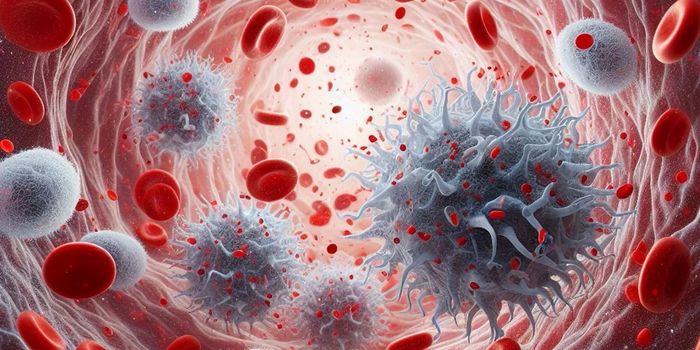A Potential Way to Prevent Metastatic Cancer
Metastatic cancer is the deadliest, and it can happen years after cancer has been treated to the point of remission. Metastasis is when cancer cells move away from a primary cancer site (like a tumor) and through the body to cause cancer elsewhere. But those migrating cancer cells may not trigger cancer right away; it sometimes takes years before it develops. Cancer patients have to be carefully monitored so that when any metastasis occurs, it can be treated.
Scientists have learned more about how malignant cells remain dormant and then become active again to form fatal cancer.
"This dormancy period offers an important therapeutic window in which the number of cancer cells and their heterogeneity are still manageable," said Professor Mohamed Bentires-Alj, of the Department of Biomedicine at the University of Basel. "Understanding the cellular and molecular mechanisms underlying tumor dormancy is therefore crucial to preventing the recurrence of cancer." His team has made an important step in this direction.
Reporting in Nature, researchers led by Bentires-Alj used a mouse model and human tissue samples to reveal new details about how cancer cells migrate from a breast tumor to the liver, where they can either dormant or form metastatic tumors. Two cell types were found to play a role in the process.
Natural killer cells are immune cells that can destroy pathogenic or cancerous cells. The researchers found that they control dormant cancer cells by secreting a molecule called interferon-gamma, which shuts down the cancer cell's ability to proliferate.
But another type of cell called hepatic stellate cells were found to influence the activity of natural killer cells; activated hepatic stellate cells can inhibit natural killer cells. The reduction in natural killer cell activity awakens the cancer cells from their hibernation.
"There can be various reasons why hepatic stellate cells are activated; for example, chronic inflammation in the body or persistent infection," explained first study author Ana Luísa Correia. Now the researchers want to know more about the details.
This study also suggested that metastasis could be prevented in a few ways: immunotherapy that raises the number of natural killer cells in tissues using a molecule called interleukin-15; interferon-gamma therapy that keeps cancer cells dormant; or hepatic stellate cell inhibitors to keep natural killer cells active. There are existing therapies using these approaches, but they are still in testing phases.
"Our findings raise the hope of immunotherapies that focus on natural killer cells as a preventive strategy for patients with dormant cancer cells at risk of developing metastases," said Bentires-Alj. "The next stage on the long road to an established treatment will be to show that stimulating natural killer cells prevents metastasis in human patients. We are currently looking for ways to finance this next step and are already in discussion with our clinical collaborators at the University Hospital Basel."
"These cells are a natural barrier against metastasis in the liver," Correia added. If they're effective against metastases, they could potentially reduce cancer recurrence.
"My team is already studying such mechanisms in other metastatic sites and the results are promising," concluded Bentires-Alj.
Sources: AAAS/Eurekalert! via University of Basel, Nature









